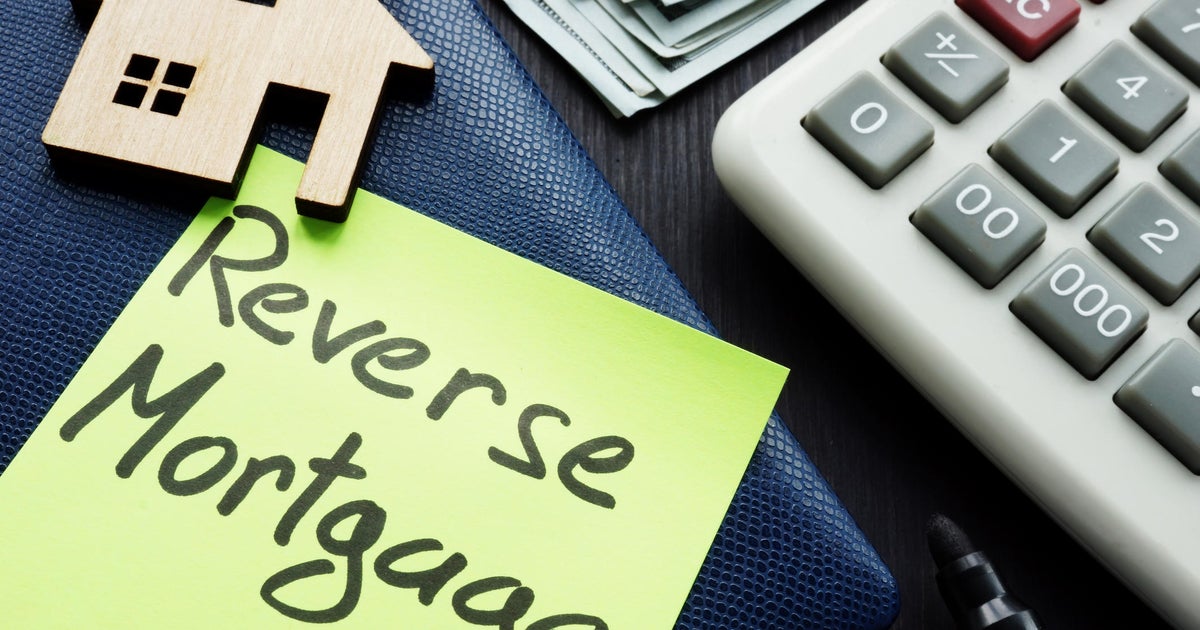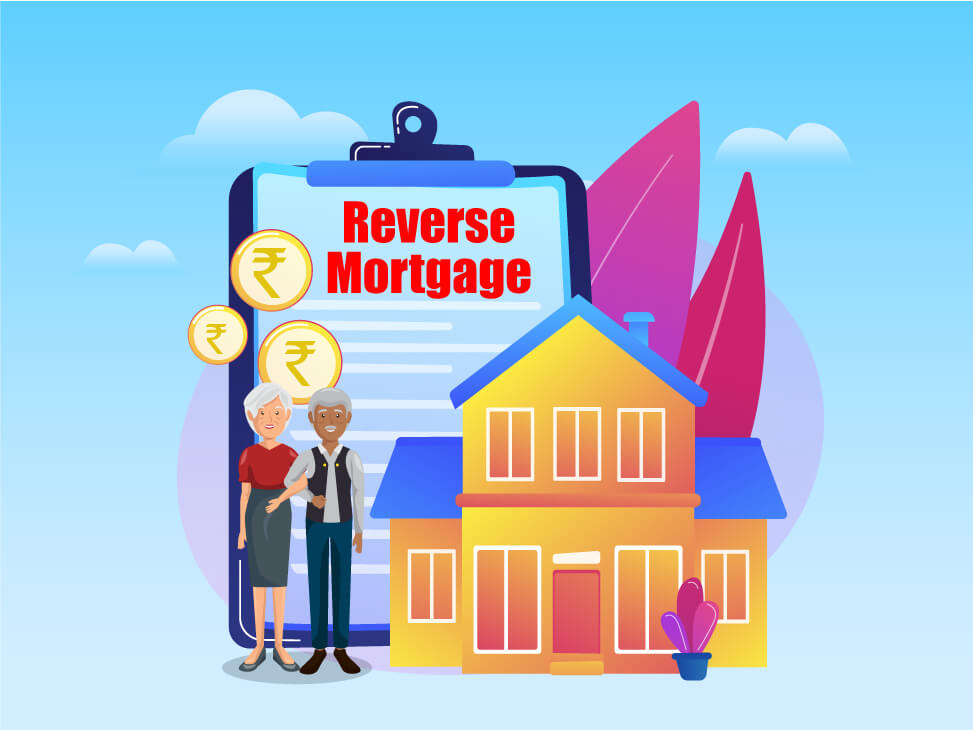Unlock Financial Liberty: Your Guide to Investing In a Reverse Mortgage
Comprehending the complexities of reverse home loans is vital for house owners aged 62 and older seeking monetary freedom. As you consider this option, it is crucial to grasp not just just how it functions however likewise the implications it might have on your economic future.
What Is a Reverse Home Mortgage?

The fundamental charm of a reverse home mortgage lies in its possible to enhance economic flexibility during retired life. House owners can make use of the funds for different objectives, including medical expenditures, home improvements, or daily living expenses, hence providing a security web during a critical point of life.
It is vital to understand that while a reverse home loan enables increased money circulation, it additionally decreases the equity in the home in time. As interest accumulates on the exceptional finance equilibrium, it is vital for prospective debtors to meticulously consider their lasting financial plans. Consulting with a monetary consultant or a reverse home loan professional can supply important understandings right into whether this alternative straightens with a person's monetary goals and conditions.
Qualification Needs
Recognizing the qualification needs for a reverse home mortgage is essential for homeowners considering this economic alternative. To certify, candidates need to be at least 62 years old, as this age criterion permits elders to accessibility home equity without month-to-month home loan repayments. Additionally, the homeowner must inhabit the house as their main home, which can include single-family homes, certain condos, and made homes satisfying particular guidelines.
Equity in the home is an additional necessary demand; property owners generally require to have a considerable amount of equity, which can be determined via an evaluation. The amount of equity readily available will directly influence the reverse home mortgage amount. Furthermore, candidates should show the capability to preserve the home, including covering real estate tax, house owners insurance coverage, and maintenance expenses, guaranteeing the property continues to be in good problem.
In addition, prospective debtors must go through an economic assessment to examine their revenue, credit report, and overall monetary scenario. This assessment assists loan providers determine the applicant's capability to fulfill recurring obligations associated with the building. Meeting these requirements is important for safeguarding a reverse home mortgage and ensuring a smooth financial shift.
Advantages of Reverse Home Mortgages
Various advantages make reverse home mortgages an appealing option for seniors wanting to improve their monetary adaptability. purchase reverse mortgage. Among the key benefits is the capacity to transform home equity right into cash money without the demand for month-to-month home mortgage settlements. This attribute permits elders to accessibility funds for numerous demands, such as clinical costs, home enhancements, or daily living expenses, consequently easing monetary anxiety
Furthermore, reverse home loans offer a safety net; elders can remain to stay in their homes for as long as they meet the lending requirements, fostering security during retirement. The proceeds from a reverse home mortgage can likewise be utilized to delay Social Protection check over here advantages, potentially resulting in higher payouts later on.
In addition, reverse home loans are non-recourse fundings, implying that borrowers will certainly never owe more than the home's worth at the time of sale, safeguarding them and their heirs from monetary liability. Last but not least, the funds gotten from a reverse mortgage are normally tax-free, adding an additional layer of economic alleviation. In general, these advantages setting reverse home mortgages as a functional solution for elders seeking to enhance their financial circumstance while keeping their treasured home setting.

Expenses and Costs Included
When taking into consideration a reverse mortgage, it's important to be mindful of the various expenses and charges that can influence the total financial photo. Comprehending these expenditures is crucial for making an informed decision regarding whether this monetary item is appropriate for you.
Among the primary costs related to a reverse home loan is the origination charge, which can differ by lending institution yet usually varies from 0.5% to 2% of the home's appraised value. Additionally, property owners ought to expect closing expenses, which may include title insurance coverage, evaluation charges, and credit score record costs, commonly totaling up to numerous thousand bucks.
One more considerable cost is mortgage insurance premiums (MIP), which protect the lending institution versus losses. This cost is normally 2% of the home's value at closing, with an ongoing annual costs of 0.5% of the continuing to be finance equilibrium.
Finally, it is essential to consider ongoing prices, such as real estate tax, property owner's insurance, and upkeep, as the debtor stays responsible for these expenditures. By very carefully assessing these charges and costs, home owners can much better assess the economic ramifications of pursuing a reverse home mortgage.
Steps to Obtain Started
Beginning with a reverse home loan entails several vital steps that can assist streamline the process and guarantee you make informed choices. Initially, evaluate your economic situation and figure out if a reverse mortgage aligns with your lasting goals. This consists of assessing your home equity, present financial debts, and the necessity for extra earnings.
Following, research various loan providers and their offerings. Seek reliable organizations with favorable testimonials, clear fee structures, and competitive rates of interest. It's necessary to compare conditions and terms to discover the most effective suitable for your requirements.
After picking a lending institution, you'll require to finish a detailed application process, which generally requires paperwork of earnings, possessions, and residential property information. Involve in important link a therapy session with a HUD-approved counselor, who will offer insights into the implications and responsibilities of a reverse mortgage.
Conclusion
To conclude, reverse home mortgages offer a sensible alternative for senior citizens seeking to improve their financial stability throughout retired life. By converting home equity into accessible funds, homeowners aged 62 and older can address numerous economic requirements without the stress of regular monthly repayments. Understanding the details of qualification, benefits, and associated prices is necessary for making notified decisions. Mindful factor to consider and planning page can lead to better lifestyle, guaranteeing that retired life years are both safe and satisfying.
Understanding the details of reverse home loans is essential for house owners aged 62 and older seeking monetary liberty.A reverse home loan is an economic product created primarily for house owners aged 62 and older, allowing them to convert a section of their home equity into money - purchase reverse mortgage. Consulting with an economic advisor or a reverse home loan professional can provide useful understandings into whether this choice straightens with a person's financial goals and conditions
Furthermore, reverse home loans are non-recourse financings, meaning that debtors will certainly never ever owe even more than the home's value at the time of sale, safeguarding them and their beneficiaries from economic responsibility. Overall, these benefits setting reverse home loans as a functional remedy for seniors seeking to enhance their monetary circumstance while preserving their treasured home setting.
Comments on “Can You Purchase Reverse Mortgage as Part of Your Financial Strategy?”